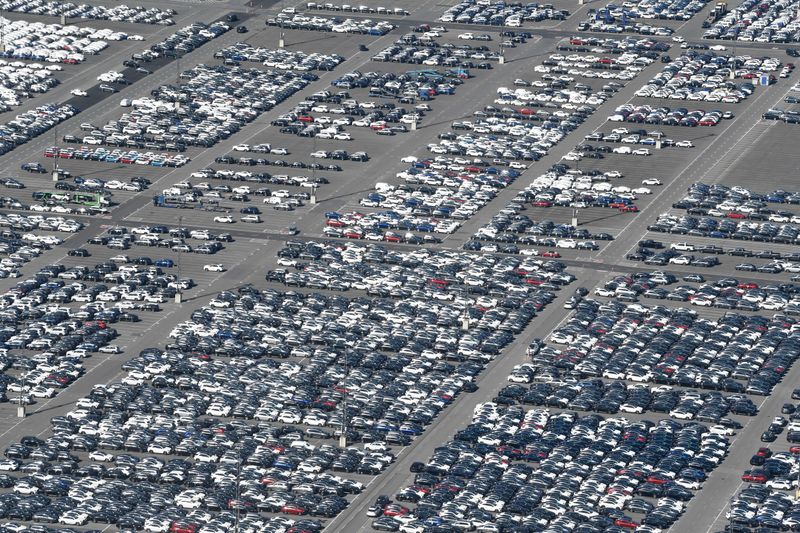By Joseph Nasr and Rene Wagner
BERLIN (Reuters) - German exports remained far below their pre-crisis levels in July despite a 4.7% increase during the month, data published on Tuesday showed, adding to signs that Germany's economic recovery from the coronavirus will be slow.
Imports rose by only 1.1% on the month, taking the seasonally adjusted trade surplus to 18 billion euros, the Federal Statistics Office said.
Economists expect Europe's biggest economy to show a return to growth in the third quarter, helped by higher activity levels domestically and in some of Germany's main trading partners after lockdowns were lifted from April.
Yet weak demand from major economic peers still grappling with the pandemic, such as the United States, is holding back a stronger recovery.
The data showed that exports to the United States were 17% lower in July year-on-year. Exports to China, however, which is experiencing a more pronounced recovery than the United States, were only 0.1% lower.
"While today's numbers are good news for our call of surging GDP growth .... (in the second half of the year) and suggest that the export sector is flourishing again, we should not get carried away by these numbers," said Carsten Brzeski, euro zone chief economist at ING.
He added: "They are still part of the mechanical rebound. In fact, the German export sector is still suffering from structural challenges including trade tensions, Brexit and global supply chain disruptions as well as difficulties among its main trading partners to cope with the virus."
The German economy contracted by a record 9.7% in the second quarter as household spending, company investment and trade all collapsed at the height of the COVID-19 pandemic.
Exports were in July still more than 12% lower than in February.
Trade tensions, uncertainties linked to Britain's departure from the European Union and an automotive sector struggling to adapt to electrification had suppressed demand for German goods and services before the pandemic, setting off a recession in the manufacturing sector.
The COVID-19 crisis makes a full recovery difficult.

The VDMA business association said on Tuesday that German engineering firms expected production to decline by 17% this year before growing by only 2% in 2021 - barring both a second coronavirus wave and resurgent trade disputes.